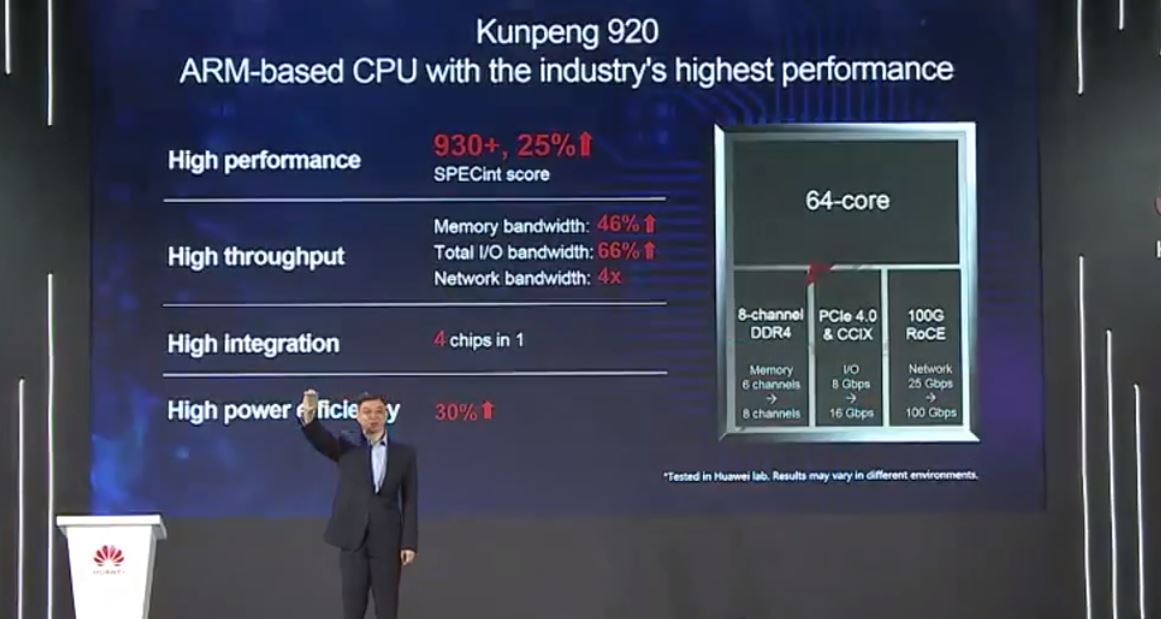- Jun 21, 2017
- 749
- 898
- 96
https://www.servethehome.com/huawei-kunpeng-920-64-core-arm-server-cpu/
Today Huawei announced a new 64-Core Arm Server CPU. The Huawei Kunpeng 920 is being billed as the fastest Arm CPU to date. One thing is for sure, there is going to be interest in this CPU not just for the 64 custom Arm cores, but also the I/O that the chip has onboard. We thought we would take a moment to show what Huawei is building, and why it is important.
Beyond the CPU cores and 8 channel DDR4-2933 memory controller, the company is also introducing PCIe Gen4 and CCIX support. We know that AMD EPYC Rome will support PCIe Gen4 this year (likely with CCIX), and Intel Cascade Lake will not. Like we saw Cavium do with the original ThunderX, Huawei is also integrating networking with a 100GbE RoCE NIC in the Kunpeng 920.

And now comes the new competition.... Good luck to anyone who isn't innovating and pushing boundaries. The standards are being set.
Today Huawei announced a new 64-Core Arm Server CPU. The Huawei Kunpeng 920 is being billed as the fastest Arm CPU to date. One thing is for sure, there is going to be interest in this CPU not just for the 64 custom Arm cores, but also the I/O that the chip has onboard. We thought we would take a moment to show what Huawei is building, and why it is important.
Beyond the CPU cores and 8 channel DDR4-2933 memory controller, the company is also introducing PCIe Gen4 and CCIX support. We know that AMD EPYC Rome will support PCIe Gen4 this year (likely with CCIX), and Intel Cascade Lake will not. Like we saw Cavium do with the original ThunderX, Huawei is also integrating networking with a 100GbE RoCE NIC in the Kunpeng 920.

And now comes the new competition.... Good luck to anyone who isn't innovating and pushing boundaries. The standards are being set.



